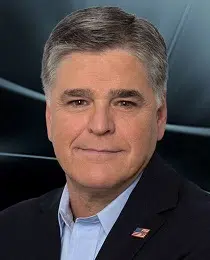(The Center Square) – Increased taxes are ahead with Illinois’ fiscal year that begins July 1, if Gov. J.B. Pritzker enacts the state budget legislators approved this week. But there was bipartisan opposition.
When the tax revenue measure came up for a vote the first time early Wednesday morning, state Rep. Fred Crespo, D-Hoffman Estates, said he sought cuts in the budget without success. The budget spends $400 million more than what the governor initially proposed. In future years, Crespo warned tax increases from increased spending have to come from somewhere.
“There’s really only one place we can look at in getting these revenues, and that’s taxpayers,” Crespo said. “And at this rate, ladies and gentlemen, we’re going to run out of taxpayer dollars to spend.”
Other Democrats voted against the measure, including state Rep. Larry Walsh Jr., D-Elwood. On the second attempt to pass the revenue measure, it again failed to get enough votes. Walsh Jr. voted “yes” on the third attempt.
“With the full framework of the budget passed and faced with the immediate threat of the state returning to the Rauner years of unbalanced budgets and broken promises, I made the incredibly difficult choice to support Governor Pritzker’s revenue enhancements,” Walsh Jr. said in a statement posted to Capitol Fax.
Hours later after the measure passed, Pritzker said “it’s a great budget,” and downplayed Democrats who voted against it. He said it’s Republicans constantly complaining.
“You know, ‘oh, wait until you see what they’re going to tax you on next,’ well they’ve been saying this for every year that I’ve been in office and it hasn’t been true,” Pritzker said.
In 2020, Pritzker backed the failed progressive income tax proposal amendment voters rejected. The year before that, he ushered in a doubling of the state’s motor fuel tax and other tax and fee increases.
The Illinois Chamber of Commerce said an increase of more than $1 billion in revenue without cuts for the coming fiscal year poses “substantial problems moving forward.”
“The Chamber has significant concerns about the revenue bill (HB4951) that passed in that it will ultimately be balanced on the backs of the taxpayers and businesses of Illinois,” the group said Thursday. “Growing our revenue base is a worthwhile effort, however, growth efforts will be for naught unless we apply fiscal balance and retain opportunities to help existing businesses grow. We look forward to being part of that conversation.”
Pritzker said he actually lowered taxes for small businesses.
“The franchise tax cut, for example, was my idea,” he said. “I’ve been pushing it every year. Republicans actually have not been asking me every year to do that. I think it’s the right thing to do.”
But, among the taxes increasing are caps on business deductions for net operating losses, a lower cap on the discount retailers get for collecting and remitting sales taxes, increased gambling machine taxes and a new tax on online lodging bookers. There’s also the tiered tax on sports betting companies Pritzker defended.
“We kept the tax on sportsbook lower than the top states in that arena,” Pritzker said. “We are third.”
And while the state’s grocery tax will be reduced from 1% to 0%, going up again on July 1 is the gas tax. Filling up in Illinois will cost nearly 2 cents more per gallon for a total of 47 cents for Illinois’ motor fuel tax, among the highest in the country.





